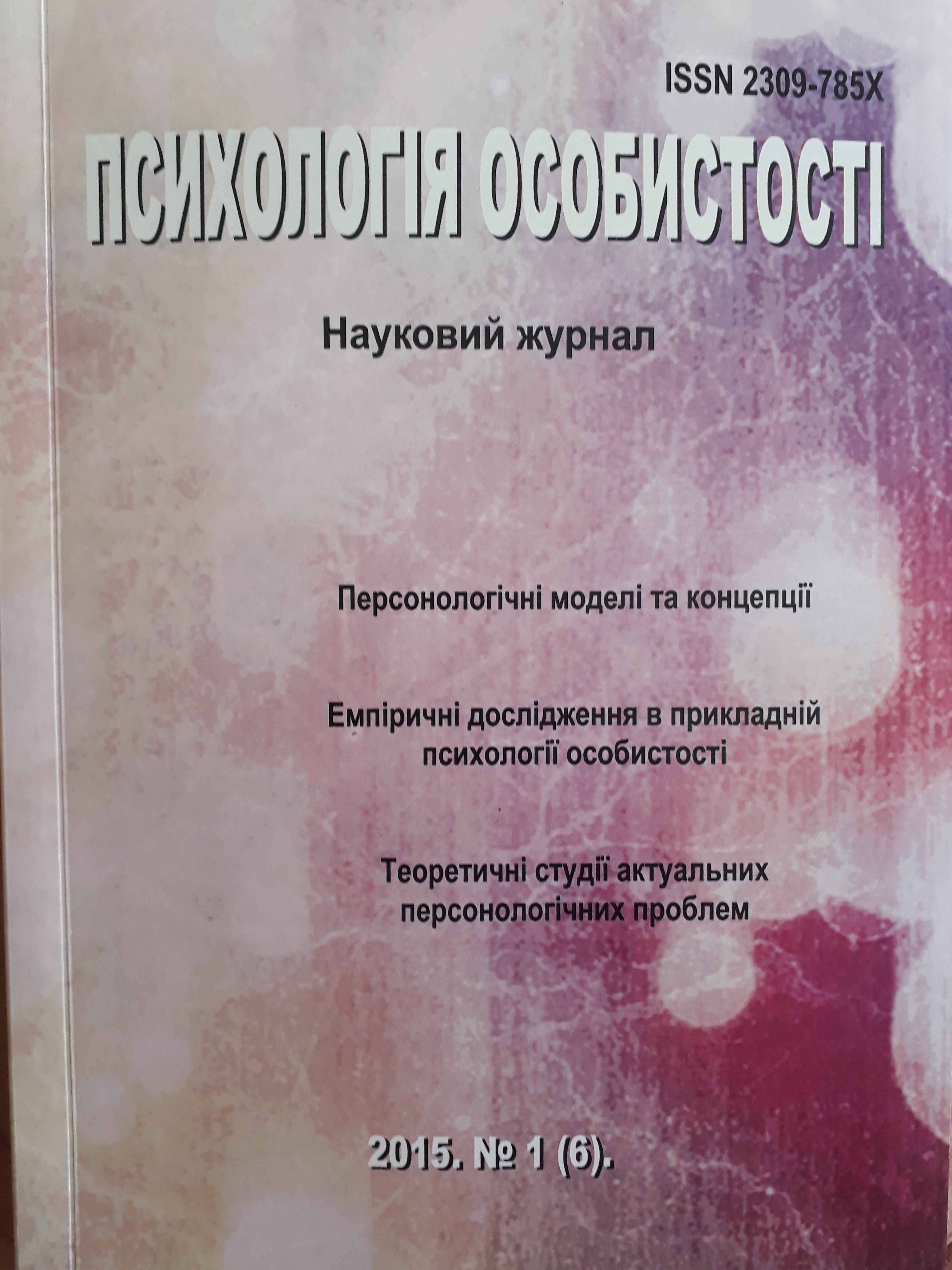ОЦІННО-МОТИВАЦІЙНИЙ КОМПОНЕНТ РЕФЛЕКСИВНОЇ КОМПЕТЕНТНОСТІ ОСОБИСТОСТІ
DOI:
https://doi.org/10.15330/ps.6.1.202-214Abstract
У статті розглядається рефлексивна компетентність як інтегративне особистісне утворення, що формується в ході набуття суб’єктом рефлексивного досвіду при застосуванні різних форм рефлексивної активності, спрямованих на розв’язання визначених рефлексивних задач. У структурі рефлексивної компетентності оцінно-мотиваційний компонент виконує наступні функції: оцінку форм рефлексивної активності та її результатів, прогнозування можливих змін у процесі розв’язування проблемно-конфліктних ситуацій, визначення пріоритетних завдань подальшого розвитку себе як суб’єкта рефлексивної активності.
На когнітивному рівні функціонує система критеріїв оцінювання власних форм рефлексивної активності, яка характеризується ступенем когнітивної складності, що відображає рівень диференціації та інтеграції системи. Функціонування оцінно-мотиваційного компонента на метакогнітивному рівні забезпечує система здібностей до прогнозування власної активності. Особистісний рівень представлений системою життєвих задач на саморозвиток, які стимулюють суб’єкта докладати зусилля щодо розвитку в себе певних якостей, формування певних вмінь та знань. Розрізненість елементів компонента є індикатором незавершеності процесу формування його внутрішньої структури, низький рівень інтеграції окремих складових не дозволяє системі ефективно компенсувати недорозвинені елементи. Найбільшу вагу у внутрішній структурі оцінно-мотиваційного компонента має показник сформованості системи здібностей до прогнозування власної активності, що підтверджує системотвірну функцію структур метакогнітивного рівня.
In the article the reflective competence is seen as an integrative personal formation which develops in the process of acquiring of the reflective experience, when the subject is using various forms of the reflective activity for the solving of specific reflective tasks. In the structure of the reflective competence the value-motivational component performs such functions: an evaluation of forms of the reflective activity and its results, a prediction of the possible changes in the process of solving of the problem-conflict situations, a determining of the priorities for further development of himself as a subject of the reflective activity.
The system of the criteria of an evaluating of the reflective activity`s forms functions on the cognitive level of the reflective competence. The level of the cognitive complexity is the basic feature of this system. The predictive abilities` system, that allows to form the expectations of the activity`s results, presents the value-motivational component on the metacognitive level. The system of the life tasks for the self-development, which stimulates the subject to make efforts to develop his own qualities, to form specific skills and knowledge, functions on the personal level. The fragmentation of the elements is an indicator of the incompleteness of the formation of the internal structure of the value-motivational component. The low level of integration of the separate elements does not allow effectively to compensate the functioning of the unformed elements of the system. The index of the formation of the abilities to predict his own activity has the greatest meaning in the internal structure of the value-motivational component. These data confirm the hypothesis about the system-forming function of the metacognitive structures that unite other structures. Thus the development of the predictive abilities will promote the increase of the abilities to the prediction of the others` behavior. An adequate assessment of other people significantly reduces the inconsistency of his own expectations and estimations of others. The development of the predictive abilities creates favorable conditions for the formation of the life tasks for the self-development to increase their value in the system of other tasks

